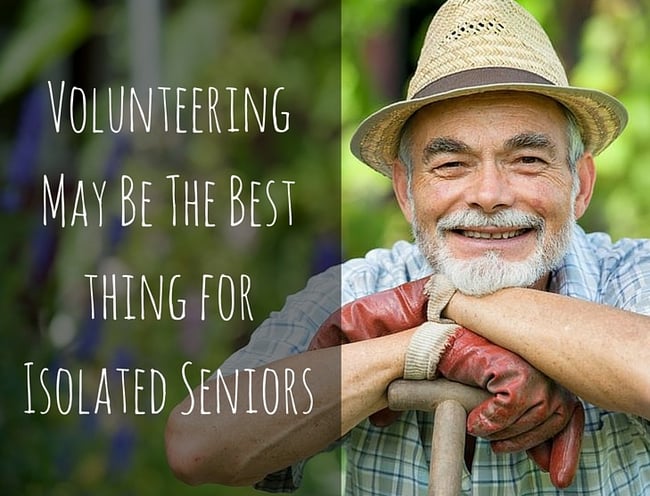
When you meet older adults living in today’s retirement communities, they are so vital that you’d think they had actually moved into engagement communities. There is no brooding and sitting around all day for these dynamos. They know that staying active physically, mentally, and emotionally is the key to an enriched life. Now that they are free of the burdens of caring for a home, they’ve got plenty of time to themselves. But the funny thing is—these seniors are usually not spending a lot of time in their new homes. Most are probably volunteering somewhere.
If you feel that your loved one might benefit from sharing her skills and passions with a charitable cause, there are many reasons to encourage her. Senior volunteers are in great demand, and there are as many creative ways to serve as there are talented seniors.
Volunteers Live Longer
Numerous studies show that people who volunteer enjoy enhanced health and longevity.
- In 2002, researchers studied over 6,300 retired seniors over age 65 and discovered that the volunteers among them who gave at least 100 hours a year of service had halved their serious health risks.
- Results from a Health and Retirement Study showed that even a small amount of volunteer activity lowered high blood pressure, a risk factor for cardiovascular disease and kidney failure.
- The regular physical activity that volunteering requires can increase cardiovascular health and alleviate the symptoms of arthritis by improving flexibility and strength.
Another interesting study from the University of Michigan shows that people who serve in order to help others live longer than non-volunteers, but people who volunteer for personal benefit do not. The researchers believe that concern for others taps into the nurturing system that operates in mothers and other caregivers, such as those working in retirement communities. This tamps down the stress response while triggering the release of cognitively beneficial hormones like oxytocin.
While it’s true that volunteering is good for the body and mind, you can have too much of a good thing. When researchers at the University of Michigan followed up on an 8-year study with 1,211 adults over age 65, they found that while those who donated at least 40 hours per year to a single charitable cause were 40 percent more likely to still be flourishing, volunteers who divided their time among several organizations didn't experience the same gains in longevity.
Volunteers Experience Less Depression
Volunteering increases social engagement and builds a community of supportive peers with common interests, both of which are known to decrease depression in the elderly. When serving others, seniors are more likely to not be focusing on their own health problems. This helps them feel more positive about their own circumstances.
Volunteers enjoy a sense of purpose and a feeling of being needed in society, which provides a boost in self-esteem and self-confidence. Mattering to others reduces stress levels; feeling appreciated is calming, and best of all, helping others releases dopamine in the brain—the “feel good” neurotransmitter that governs the brain's pleasure and reward centers. This makes people happier.
Volunteers Stay Mentally Sharp
A 2009 Johns Hopkins University study showed that older volunteers who mentored children or engaged in some other form of volunteer activity delayed or even reversed declining function in key brain regions that support cognitive abilities linked to organizing and planning. Because volunteering usually involves coordinating plans and time schedules with others, the mental stimulation involved in executing these responsibilities helps to slow cognitive decline. Plus, the physical activity and cardiovascular conditioning involved increase brain activity and mental sharpness.
Lend a Hand
Perhaps your loved one would enjoy befriending other seniors, helping them with small tasks so they remain independent, either in their own homes or in retirement communities. If your senior loved one delights in the company of children, Foster grandparenting can be a fulfilling role. Senior Corps can help you locate volunteering opportunities in the community. If your loved one has a heart for the furry creatures, the ASPCA estimates that about 7.6 million companion animals enter U.S. shelters every year. Those 3.9 million dogs and 3.4 million cats need a lot of love from volunteers, and have a lot to give back.












